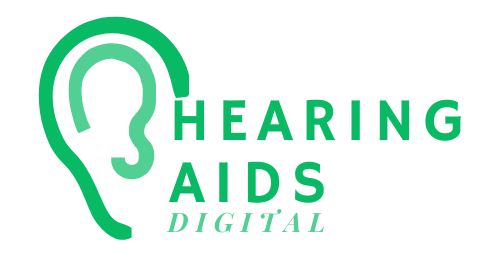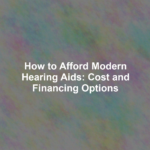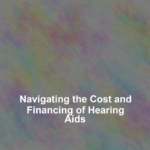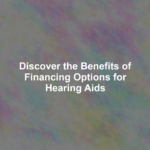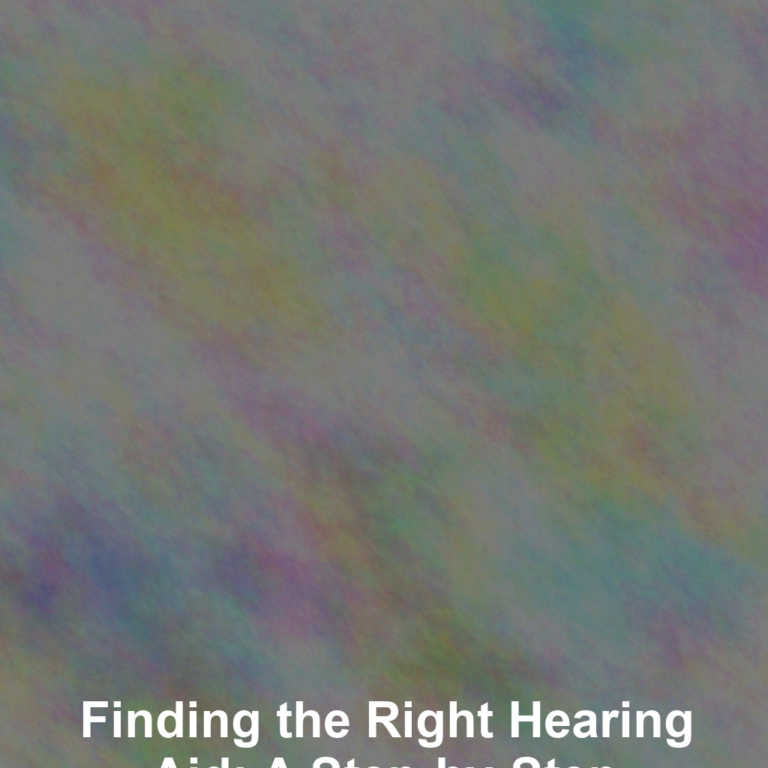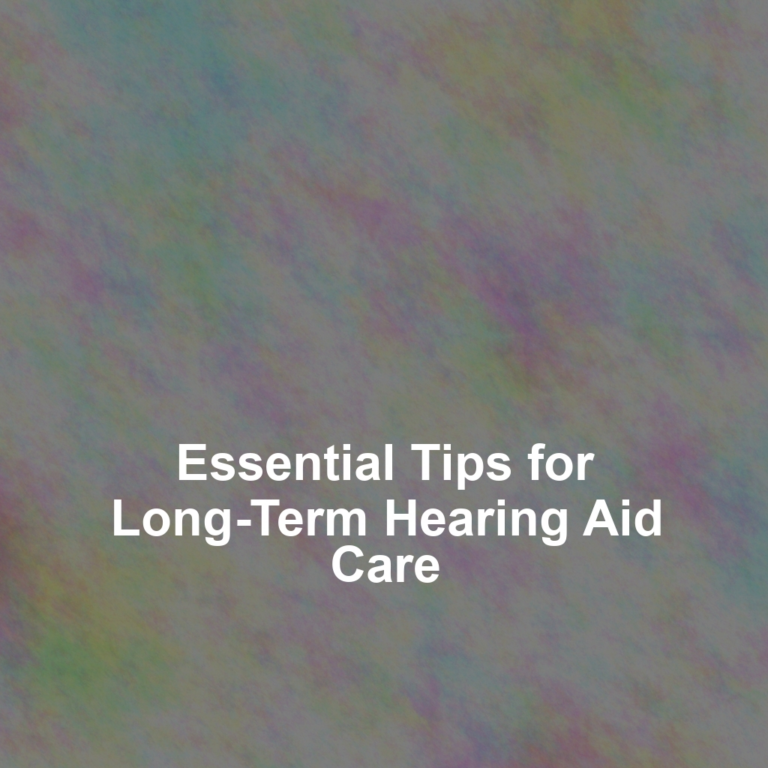Navigating the financial landscape of hearing aid acquisition can feel like charting a course through a dense fogG??knowing the destination is essential, but the path is unclear. YouG??re faced with a range of prices that often stretch well beyond a comfortable spend, yet the value of clear hearing is immeasurable.
ItG??s important to explore the various avenues available to you, from insurance coverage that may shoulder a portion of the cost to payment plans that break down the expense into manageable increments. Grants and charitable programs exist as well, providing support to those who qualify, and negotiating with providers can also unearth potential savings.
As you consider these options, bear in mind that the right financial solution for your hearing aid is out there; the question is, how do you find it without letting the process become as overwhelming as the cost itself?
Understanding Hearing Aid Costs
Before exploring financing options, itG??s essential to grasp the factors that contribute to the cost of hearing aids. YouG??ll find that prices can vary widely, primarily due to the technology involved. Advanced features like wireless connectivity, rechargeable batteries, and noise-canceling capabilities can push the cost higher. DonG??t forget, the type of hearing loss youG??re dealing with also plays a role. More severe cases may require more sophisticated, and therefore pricier, devices.
YouG??re also paying for the expertise of the audiologist. This professionalG??s time for the hearing test, fitting, and follow-up adjustments isnG??t usually free, and itG??s wrapped into the overall price. Keep in mind, too, that after-sales services such as maintenance and repairs will add to your long-term costs.
ItG??s easy to get sticker shock when you see the price tag on some of these high-tech aids, but remember, theyG??re an investment in your quality of life. While you might be tempted to opt for a cheaper model, consider how the features of a more expensive aid could better meet your needs. After all, youG??ll be wearing it every day, and settling for less could mean missing out on the full sounds of life.
Insurance Coverage Strategies
While understanding the costs of hearing aids is crucial, exploring your insurance coverage can significantly alleviate the financial burden. You should start by thoroughly reviewing your health insurance policy. Many plans have specific provisions for hearing aids and related services. DonG??t assume youG??re out of luck; some insurers cover part or all of the cost, especially if deemed medically necessary.
First, contact your insurance company directly. Ask them about the extent of coverage for hearing aids. They may require you to choose from a network of approved providers or to pay a deductible. ItG??s also essential to find out if thereG??s a waiting period before you can claim benefits for hearing devices.
If your current policy doesnG??t offer coverage, donG??t despair. You might have other options. For instance, if youG??re employed, your employer may offer a Flexible Spending Account (FSA) or a Health Savings Account (HSA). Both allow you to set aside pre-tax dollars for medical expenses, including hearing aids.
Lastly, consider supplemental insurance plans that focus on hearing health. These can be purchased separately and often offer benefits specifically for hearing aids and audiological care. By strategizing with insurance coverage, youG??ll be better positioned to manage the costs of your hearing aids.
Exploring Payment Plan Solutions
If youG??re grappling with the upfront cost of hearing aids, considering payment plans offered by audiologists or hearing aid providers can offer a manageable financial path forward. These payment plans can spread the cost over several months or even years, making the investment in your hearing health more accessible.
When youG??re exploring payment plan solutions, hereG??s what you should look for:
- Interest Rates: Some plans come with 0% interest for a certain period, while others mightG??ve a low-interest rate that accrues over time. Make sure you understand how much extra youG??ll be paying in the long run.
- Payment Terms: Assess the length of the payment plan G?? shorter terms generally mean higher monthly payments, but they can also mean less interest paid over time. Find a balance that fits your monthly budget.
- Early Repayment Penalties: Check if there are any penalties for paying off your hearing aids early. You donG??t want to be penalized for getting ahead on your payments.
Grants and Charitable Assistance
You may also explore grants and charitable assistance programs specifically designed to help cover the costs of hearing aids. These initiatives can be a lifeline if youG??re struggling with the financial burden of improving your hearing. Many non-profit organizations and foundations offer financial aid to those with hearing loss, particularly individuals who are low-income, uninsured, or underinsured.
To start, youG??ll want to research local organizations, as many grants are region-specific. DonG??t overlook national foundations either; some have programs that serve people across the country. YouG??ll typically need to complete an application and provide evidence of your financial situation and hearing needs.
Moreover, if youG??re a veteran, you might be eligible for assistance through the Department of Veterans Affairs. They often provide hearing aids at no cost to those who qualify. Additionally, children and young adults may benefit from special programs aimed at supporting their developmental and educational needs.
Negotiating With Hearing Aid Providers
After exploring grants and charitable options, consider directly negotiating with hearing aid providers to potentially reduce costs. DonG??t hesitate to discuss your budget constraints; providers often understand that hearing aids are a significant investment and may be willing to work with you to find a solution that fits your financial situation.
When youG??re preparing to negotiate, keep the following strategies in mind:
-
Research Market Prices: Before you start discussions, know the average cost of hearing aids and the features that are essential for you. This information will empower you to make informed decisions and recognize a fair offer when you see one.
-
Ask About Discounts: Some providers offer discounts for various reasonsG??such as purchasing a pair of hearing aids, being a member of certain organizations, or during promotional periods. Always inquire about any potential savings.
-
Consider Older Models: New models come with a premium price tag. Let the provider know youG??re open to previous yearG??s models which can be just as effective and more budget-friendly.
Conclusion
YouG??ve explored the ins and outs of footing the bill for your hearing aid. Remember, check your insurance for hidden benefits and donG??t hesitate to discuss payment plans with providers.
Look into grants and charity programs if finances are tight, and always negotiate. With the right strategy, youG??ll find an affordable path to clear hearing.
ItG??s your hearing journeyG??take control of it with the best financing option for you.
